EHRA 2024: Late-Breaking Science Video Collection
Published: 22 April 2024
-
Views:
 1267
1267
-
Likes:
 7
7
-
Views:
 1267
1267
-
Likes:
 7
7
-
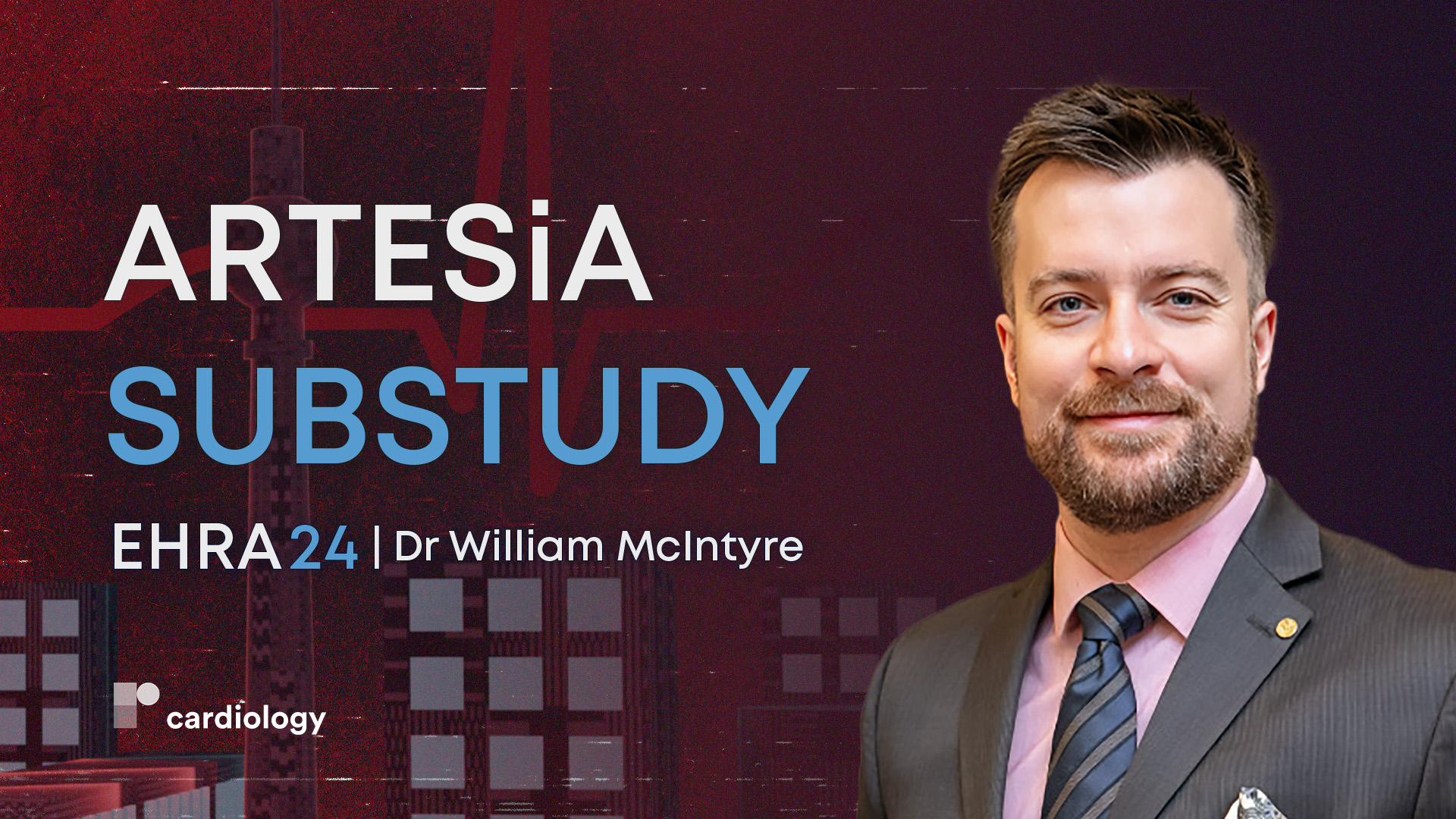 Up Next
Up Next -
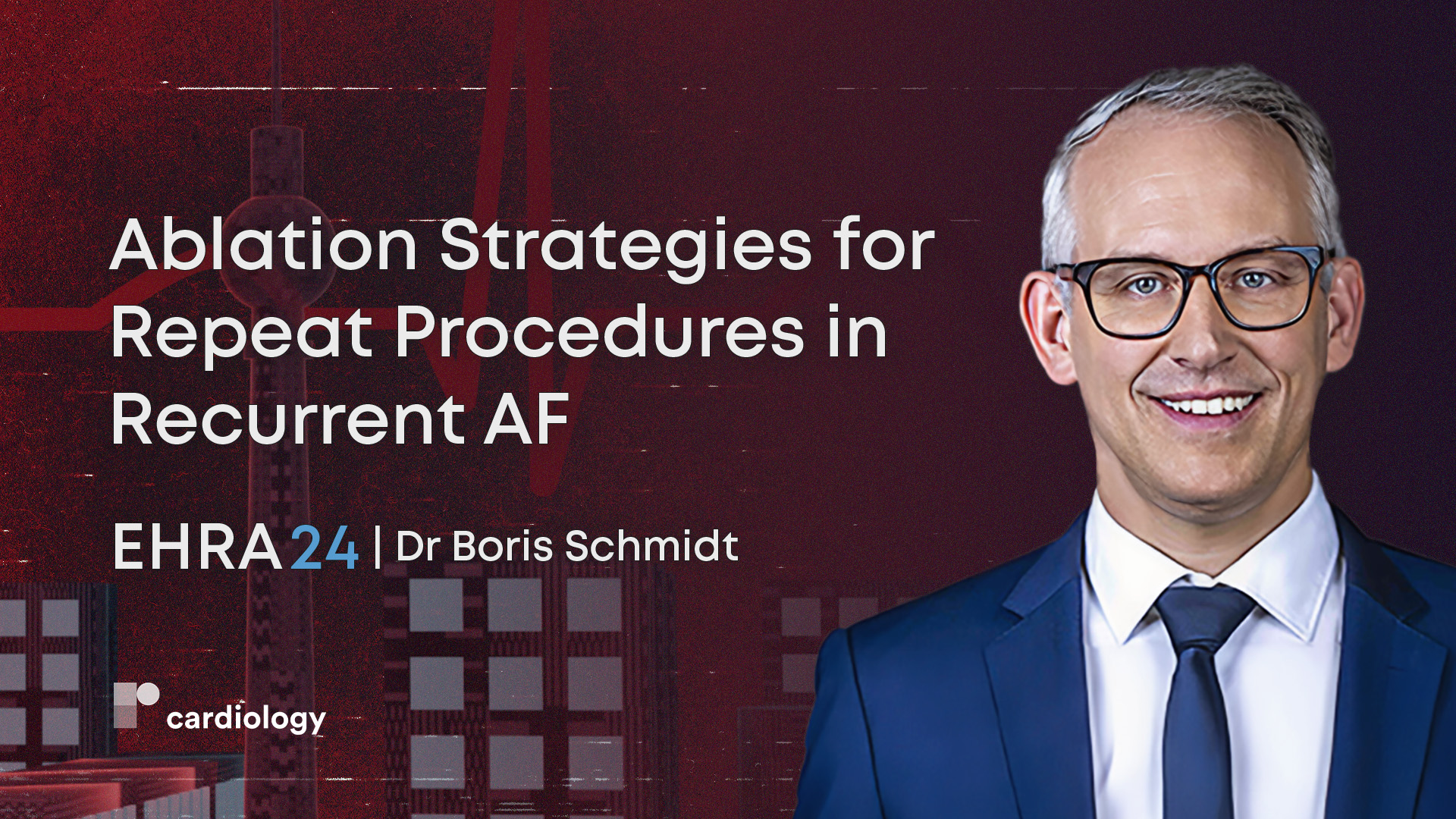 2m 53sPart 1 | Session 4 Ablation Strategies for Repeat Procedures in Recurrent AF: ASTRO
2m 53sPart 1 | Session 4 Ablation Strategies for Repeat Procedures in Recurrent AF: ASTRO -
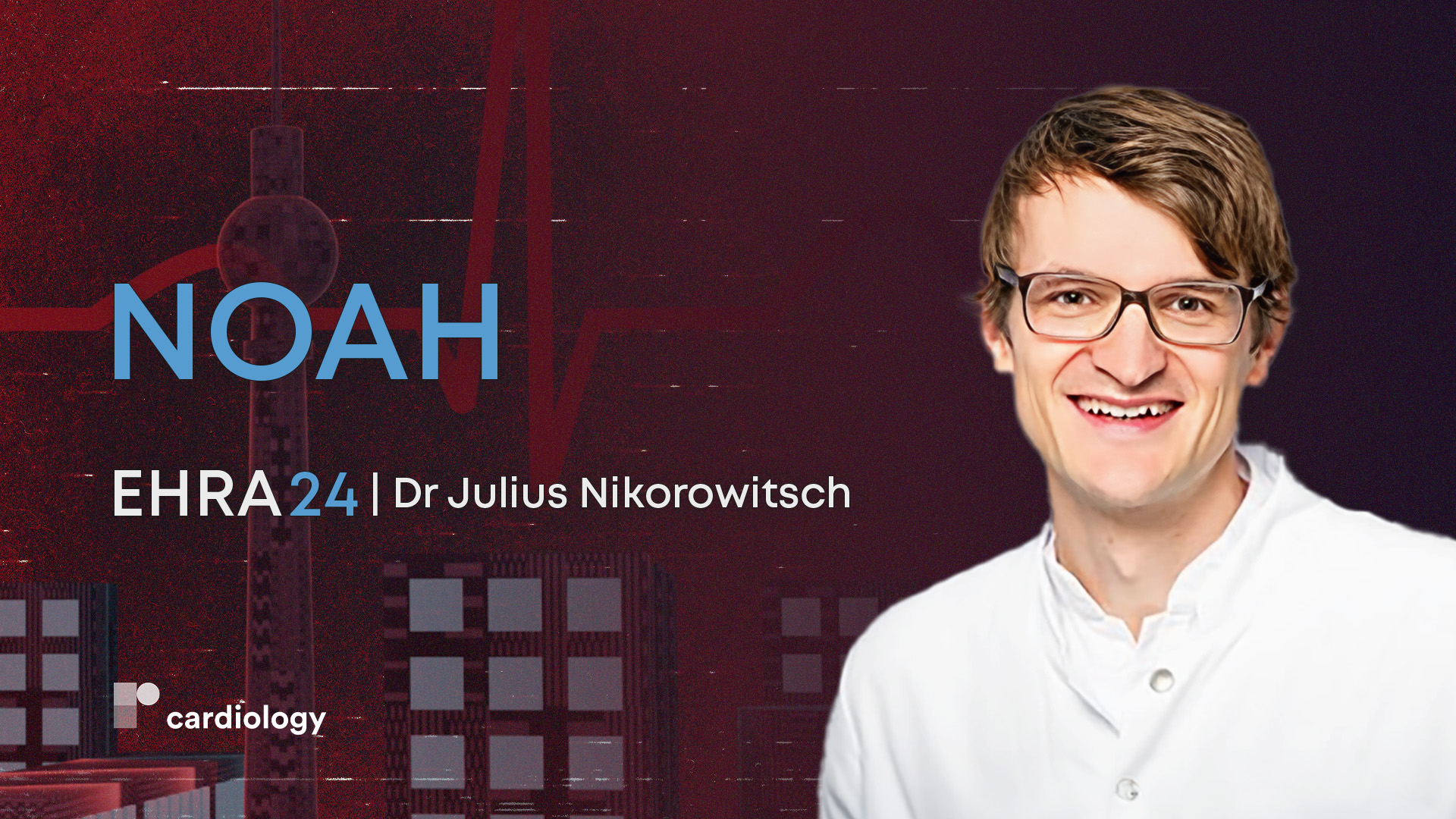 5m 26sPart 1 | Session 5 Non-Vitamin K Antagonist Oral Anticoagulant in AHRE Patients: NOAH
5m 26sPart 1 | Session 5 Non-Vitamin K Antagonist Oral Anticoagulant in AHRE Patients: NOAH -
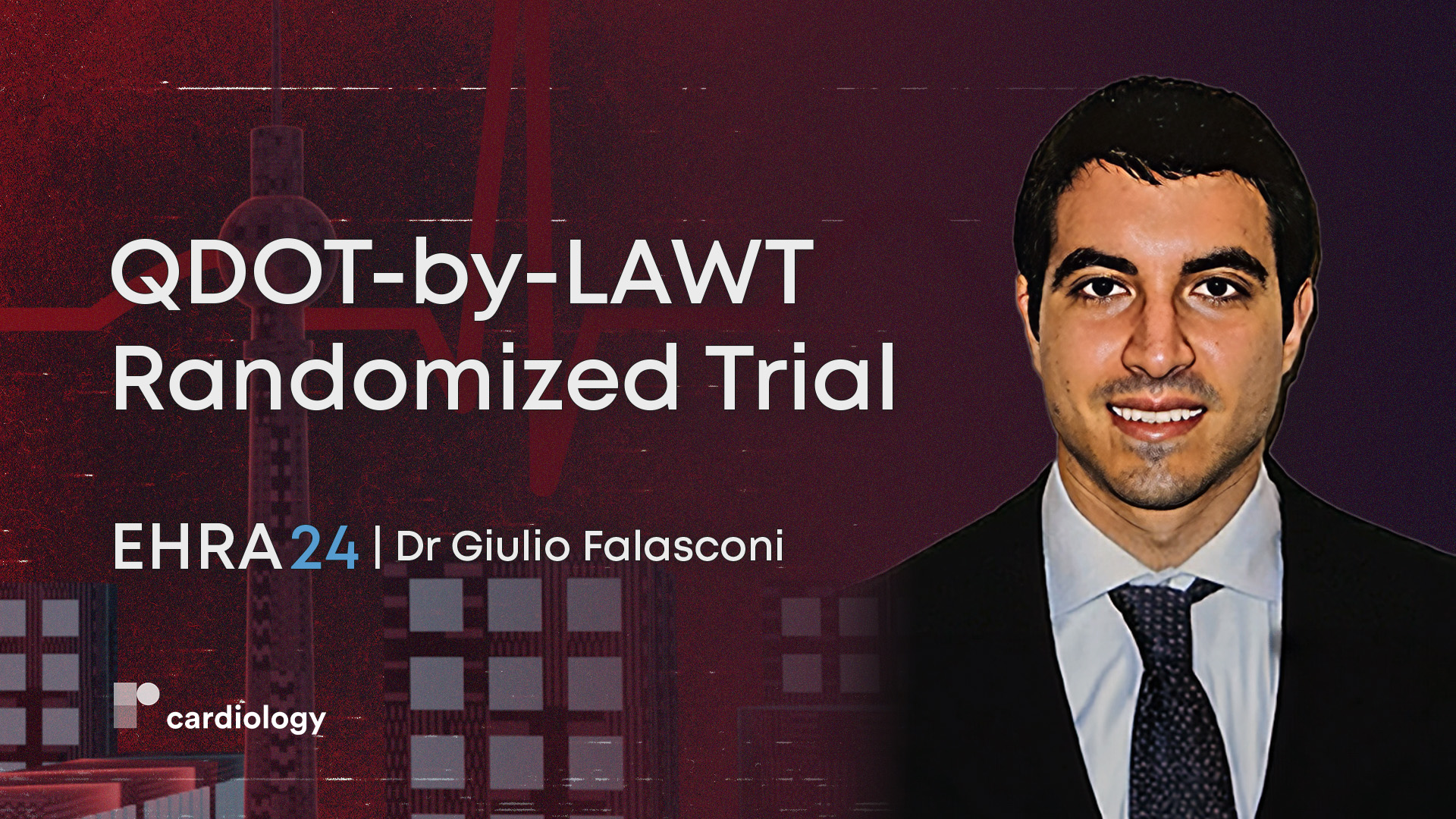 6m 51sPart 1 | Session 6 Personalised PVI: The QDOT-by-LAWT Trial
6m 51sPart 1 | Session 6 Personalised PVI: The QDOT-by-LAWT Trial -
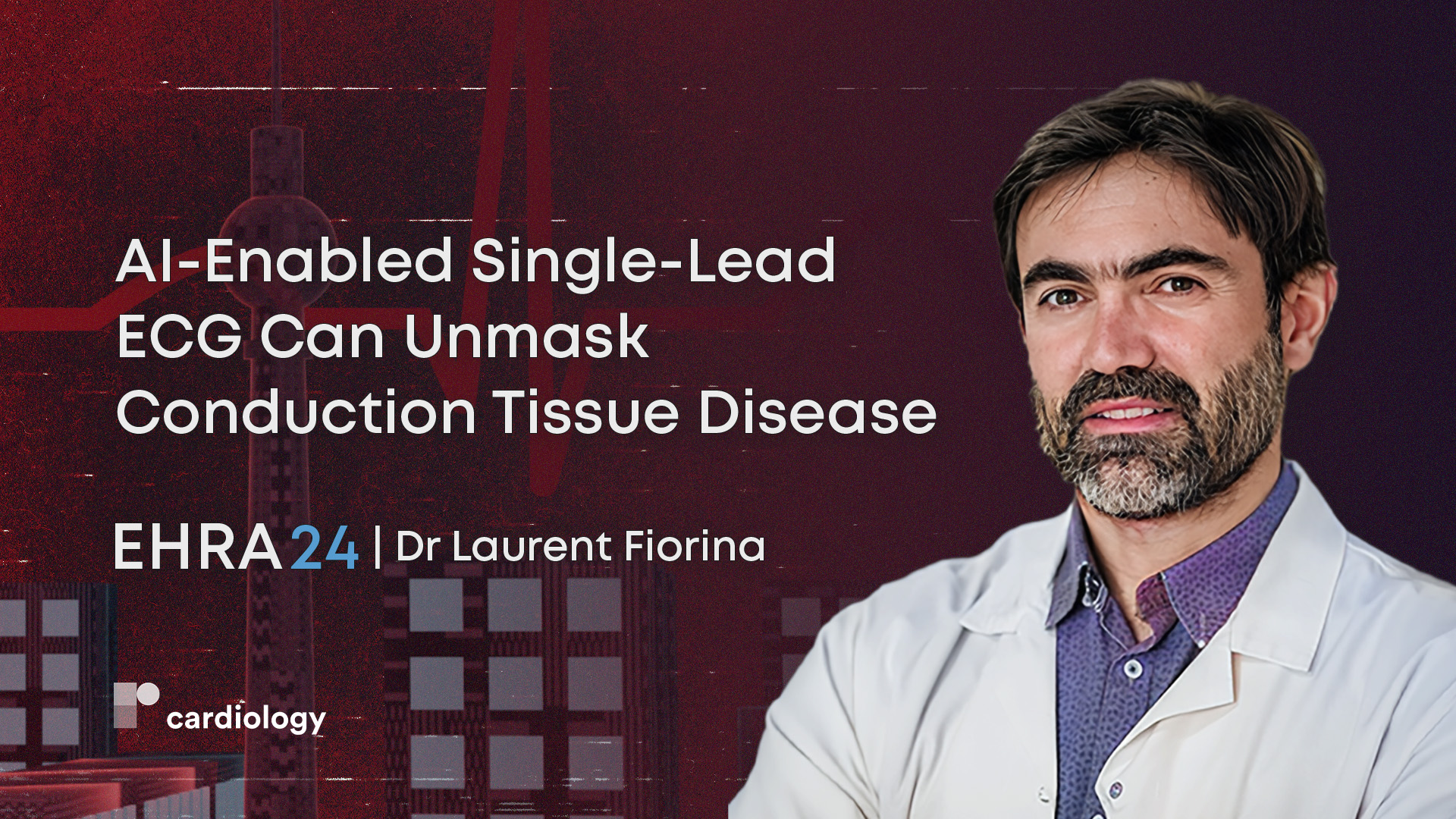 7m 10sPart 1 | Session 7 AI-Enabled Single-Lead ECG Can Unmask Conduction Tissue Disease
7m 10sPart 1 | Session 7 AI-Enabled Single-Lead ECG Can Unmask Conduction Tissue Disease
-
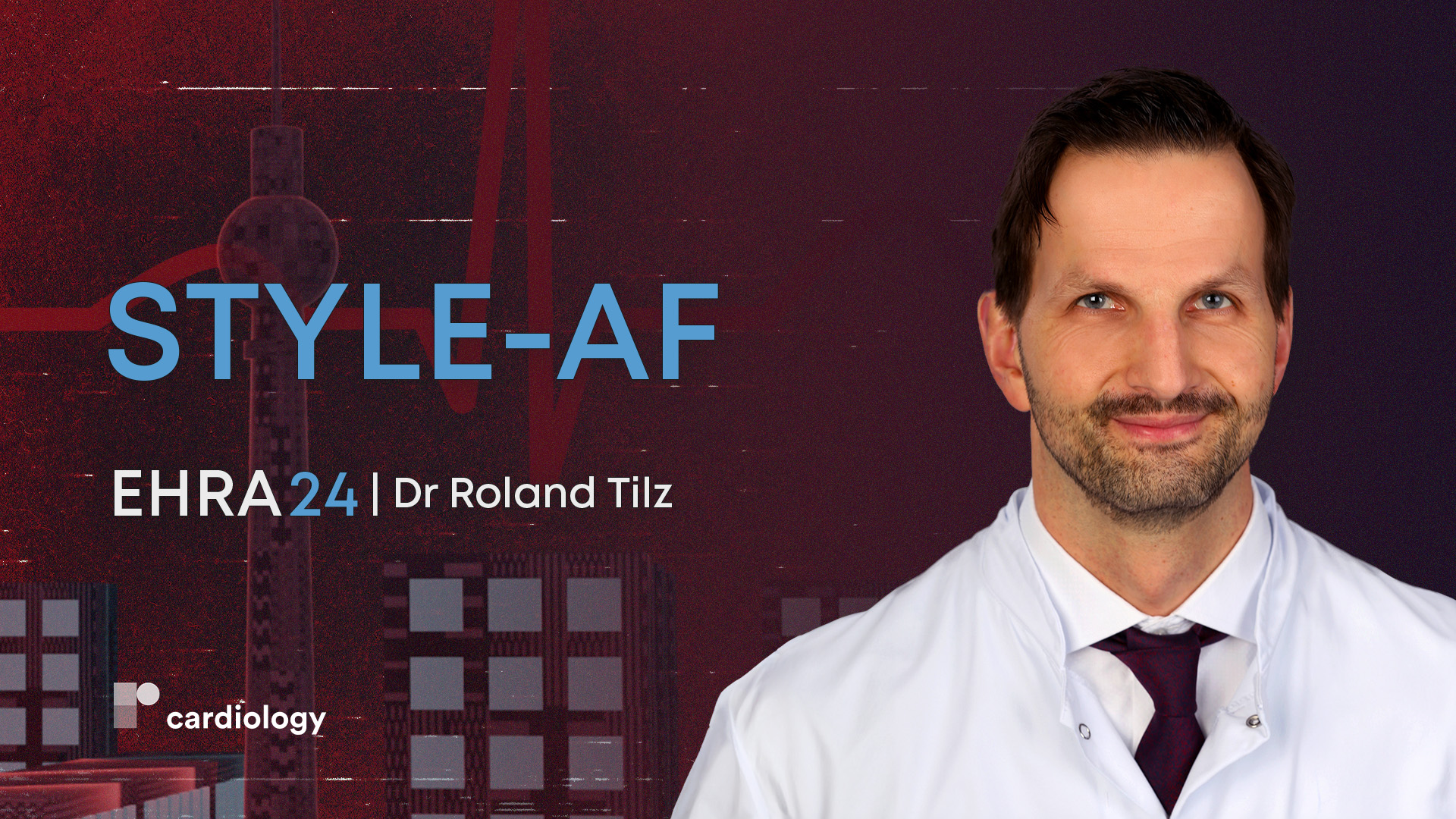 4m 54sPart 1 | Session 1 Venous Vascular Closure Vs Manual Compression: Style-AF Roland R Tilz
4m 54sPart 1 | Session 1 Venous Vascular Closure Vs Manual Compression: Style-AF Roland R Tilz
-
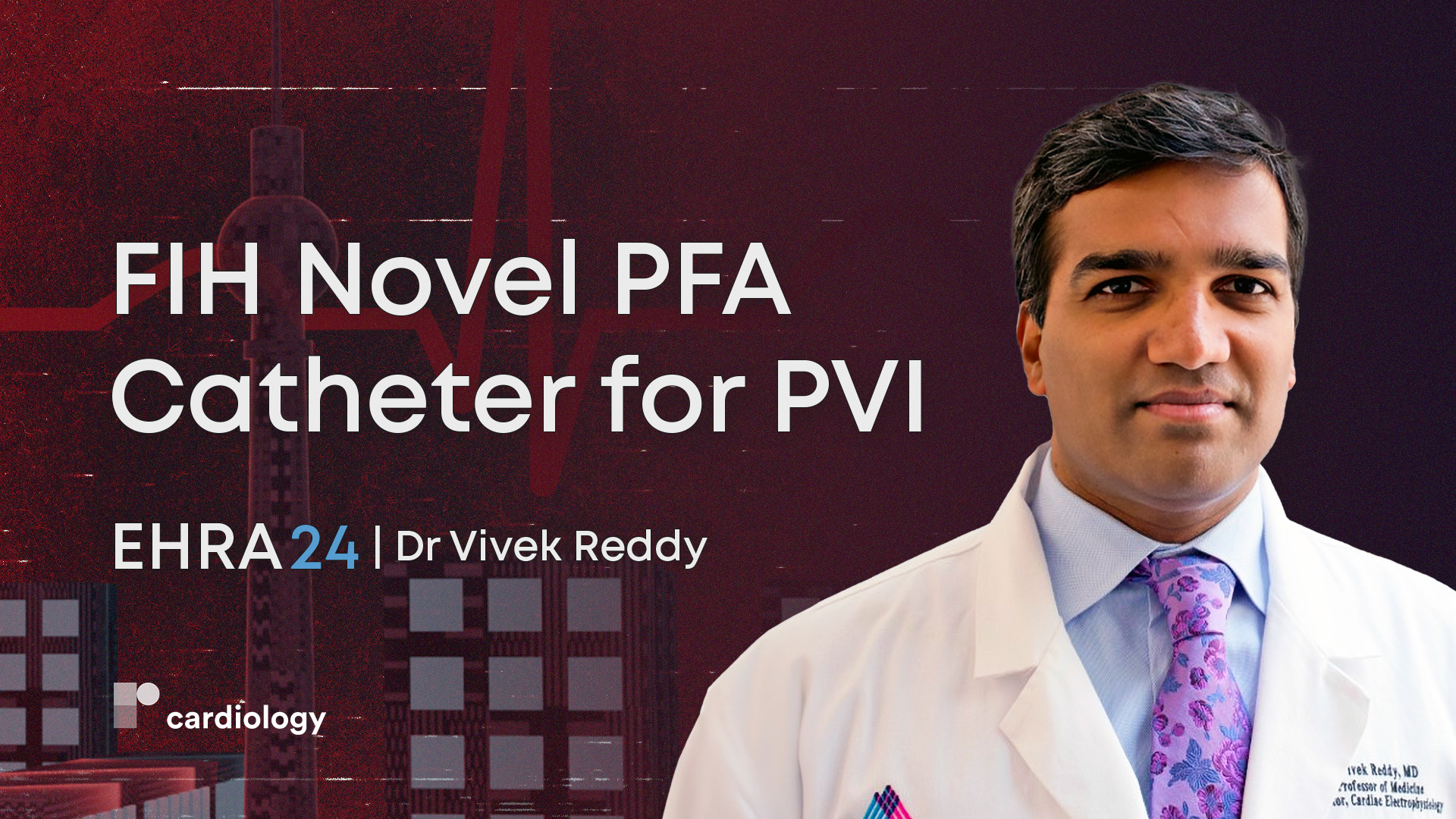 4m 3sPart 1 | Session 2 FIH Clinical Series of Conformable "Single Shot" PFA Catheter for PVI Vivek Reddy
4m 3sPart 1 | Session 2 FIH Clinical Series of Conformable "Single Shot" PFA Catheter for PVI Vivek Reddy
Overview
For short, concise coverage of the key data revealed, our accessible Expert Interviews were conducted with select faculty, focussing on the results, applicability and impact on future research and clinical practice.
More from this programme
Part 1
Expert Interviews
Part 2
Highlights
About the episode
EHRA 24 - Investigator, Dr William McIntyre (Population Health Research Institute, CA) joins us to discuss the findings from a substudy of ARTESiA (NCT01938248).
ARTESiA was a randomized, parallel assignment clinical trial which aimed to assess if apixaban could reduce the risk of ischemic stroke and systemic embolism in patients with subclinical atrial fibrillation (AF) and additional risk factors for stroke. This substudy aimed to investigate the episode duration and frequency within the ARTESiA trial. Patients were classified according to the frequency and duration of their episodes of AF, and were examined in regard to absolute risk of stroke, and the interaction to see if these factors would impact the treatment benefit of apixaban for stroke reduction.
Findings suggest that absolute risk of stroke for patients with AF episode duration of 6 minutes to an 1 hour, 1 hour to 6 hours and 6 hours to 24 hours was consistent, clustering in to about 1% per year. The treatment effect of apixaban was also found to be consistent amongst each group. When comparing patients with a AF frequency of 1-5 episodes 6 months prior to those with 6 episodes or more, absolute stroke risk and treatment effect of apixaban was also found to be consistent.
Interview Questions:
- What is the importance of this substudy?
- What was the substudy design, and patient cohort?
- What are the key findings revealed at EHRA 24?
- How do the findings of this substudy shed new light on the ARTESiA findings revealed at AHA 23?
- What are the remaining questions?
- What are your take-home messages?
Recorded on-site at EHRA in Berlin, 2024.
Editor: Jordan Rance
Video Specialist: Oliver Miles
Support: This is an independent interview conducted by Radcliffe Cardiology.








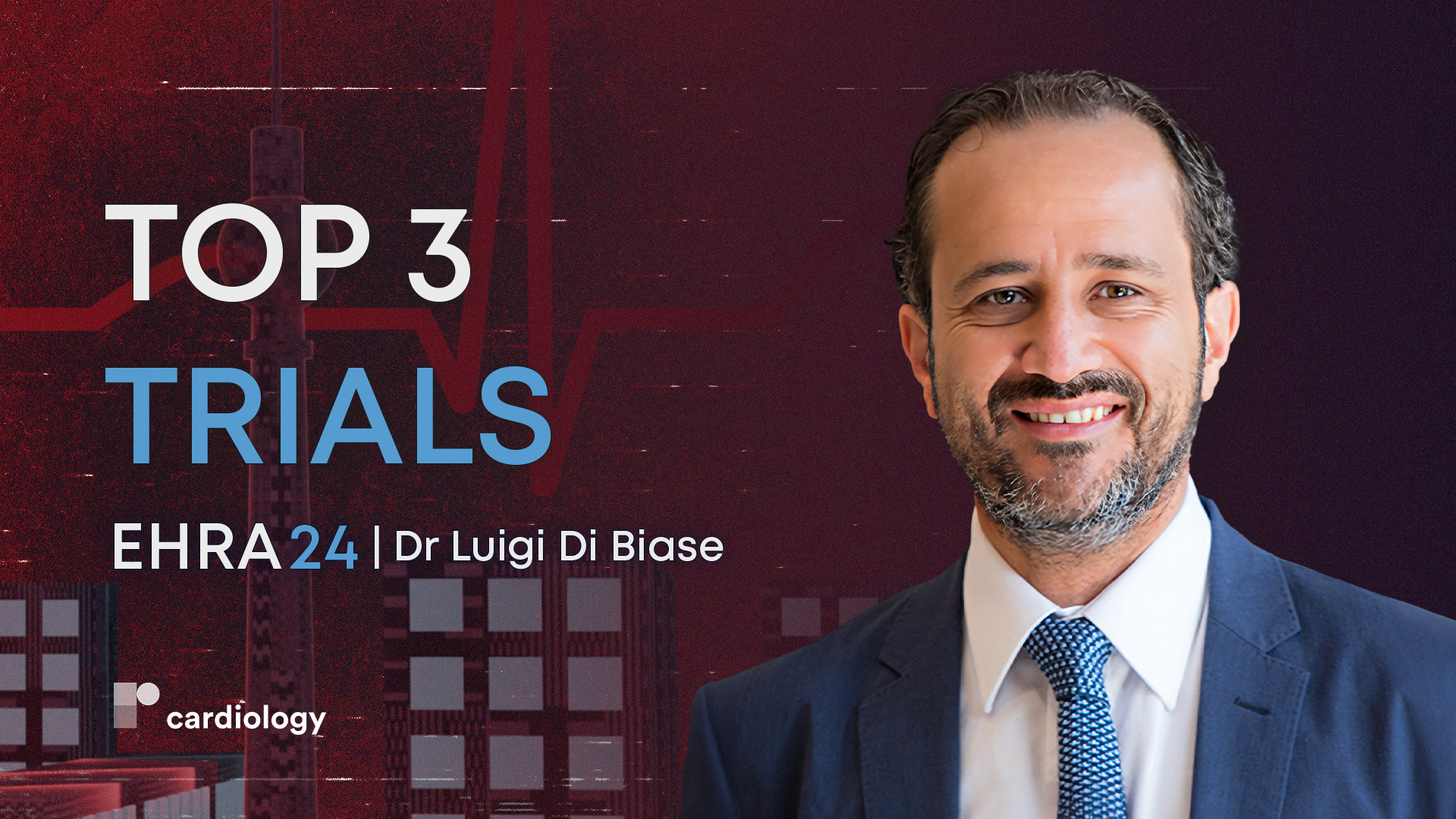
Comments